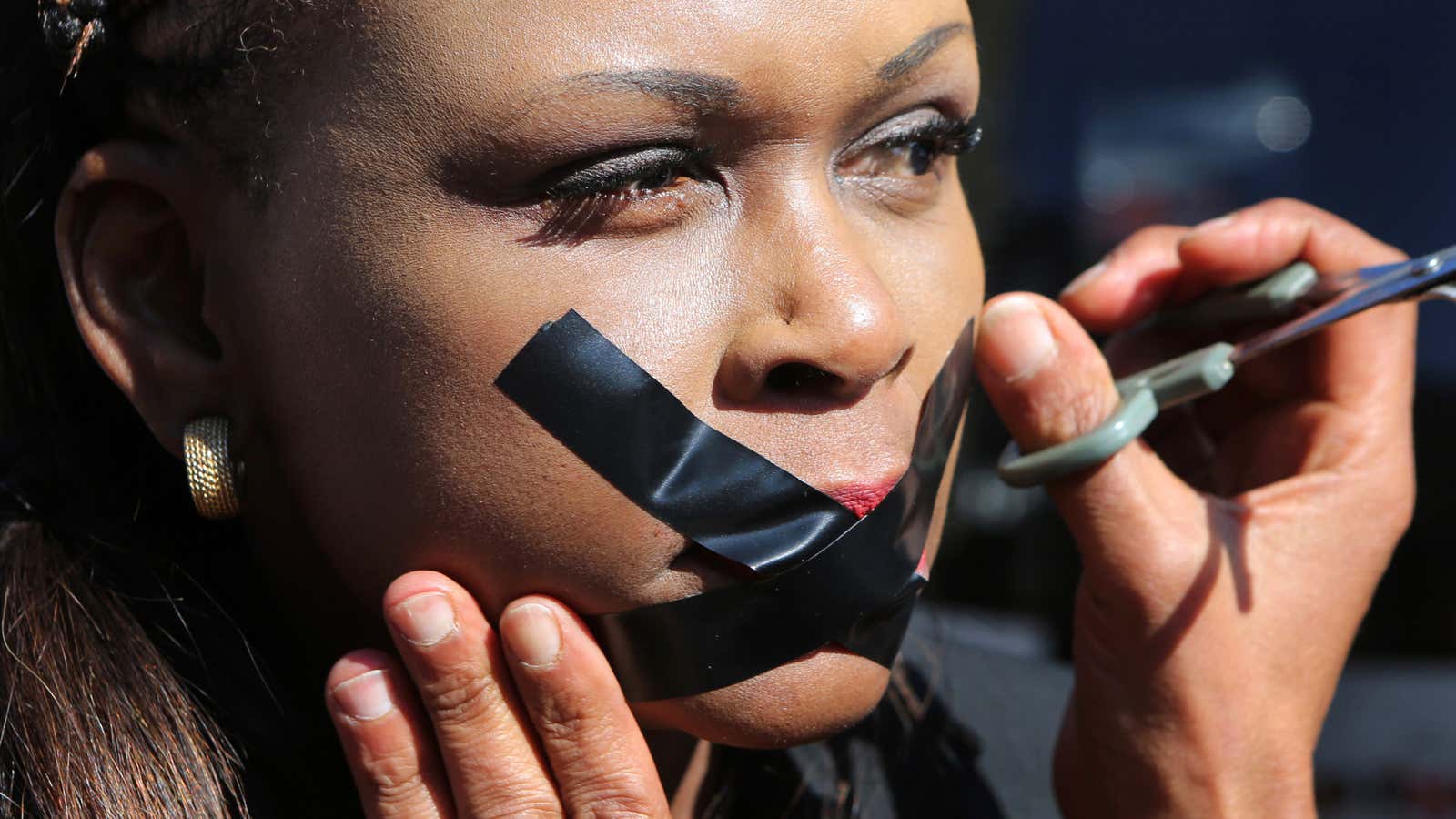South Africans journalists and former executives have been testifying this week about political interference, intimidation and espionage within the towers of the South African Broadcasting Corporation (SABC). It’s often been more intriguing than anything the broadcaster airs on television or radio.
The SABC used to be the mouthpiece of the apartheid government but was restructured in 1998 and modeled after the BBC. With three free-to-air channels channels, one 24-hour news channel and 18 radio stations in all 11 official languages, the SABC is the main source of news and information for the majority of South Africans.
Under the stewardship of the often authoritarian and sometimes incoherent Hlaudi Motsoeneng, the SABC has started to resemble its apartheid-era self once again, according to testimonies that harkened to George Orwell’s 1984. Key news events were blacked out, while the stations were forced to air soundbites from government officials, especially Motsoeneng himself. The SABC is funded by the government and an annual TV license fee mandatory with the purchase of a television set.
The journalists who testified have come to be known as the SABC 8, a group of journalists fired for standing up to Motsoeneng. Some of the journalists in the group had received death threats, while another was shot at with a hail of bullets meant to scare her away from covering parliament.
The committee heard how the State Security Agency investigated staff members accused of leaking information. In another instance, security agents allegedly carried out a “secret operation” from the broadcaster’s offices in the eastern city of Durban. Others feared their offices were bugged and would only talk in the corridors. The invisible presence of security agents was used to intimidate anyone who would not toe Motsoeneng’s line, the committee heard, creating “an atmosphere of paranoia.”
“Even when colleagues were talking, they would look around and find out who is listening in on their conversations,” said former SABC general manager of labor relations Madiwe Nkosi.
The committee also learned that the Guptas, president Jacob Zuma’s politically connected friends, once tried to take over the SABC News service. The proposed deal would see the Guptas’ media company rebrand SABC news, occupy its offices without paying rent, and use its journalists and resources all the while retaining advertising revenue. SABC executives refused the deal, but instead found themselves using public funds to keep the Guptas’ rival private 24-hour news station ANN7 afloat.
The ad-hoc parliamentary committee meeting is not usually the stuff of prime-time television, but this time audiences around the country were glued to their screens as details unfolded. The SABC’s bizarre policies in recent months have brought scrutiny, revealing that enforcing a 90% local content quota and only showing the president’s good side was only a glimpse of the real backstage spectacle. The hearings will continue until Feb. 28.
